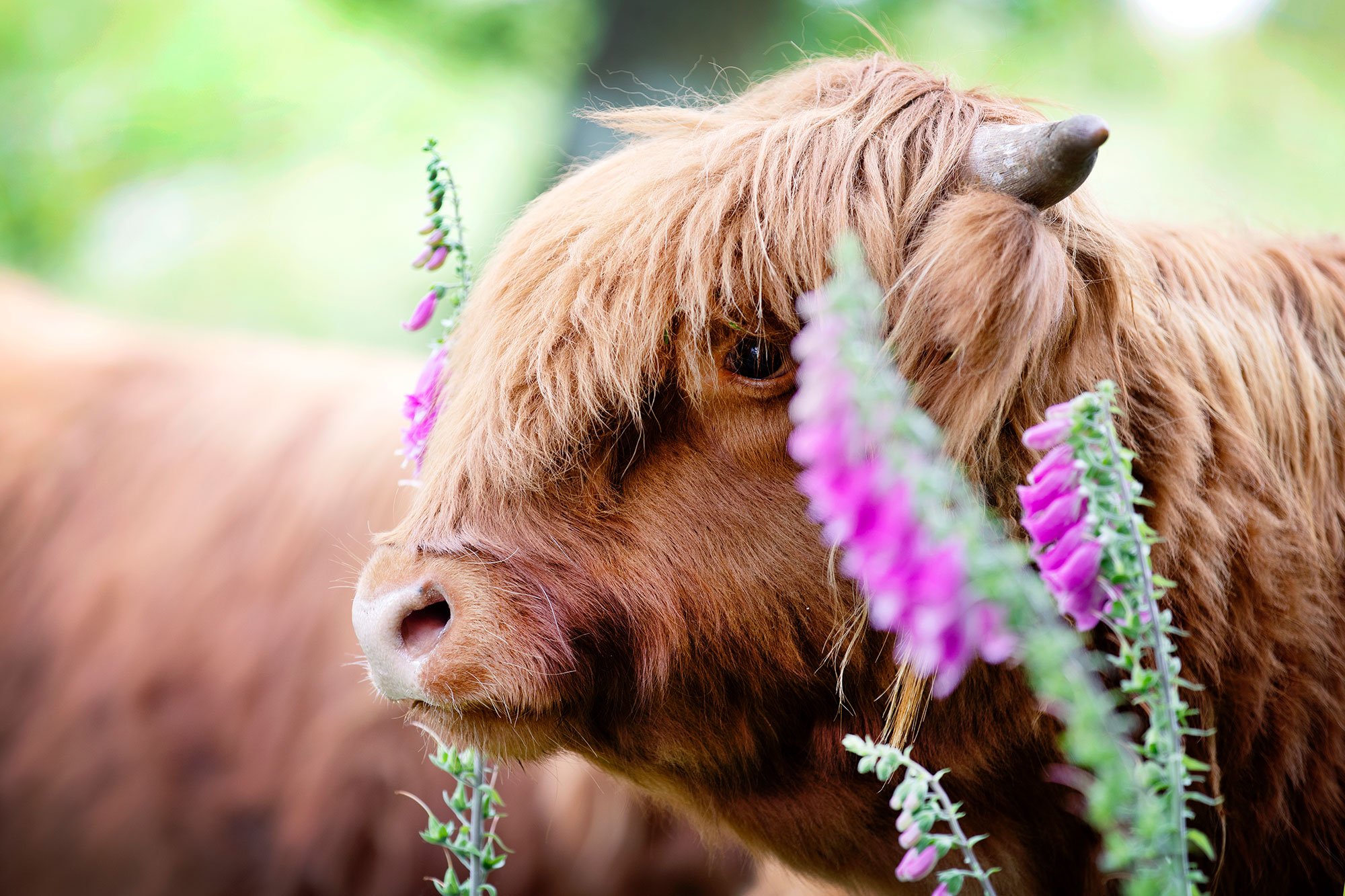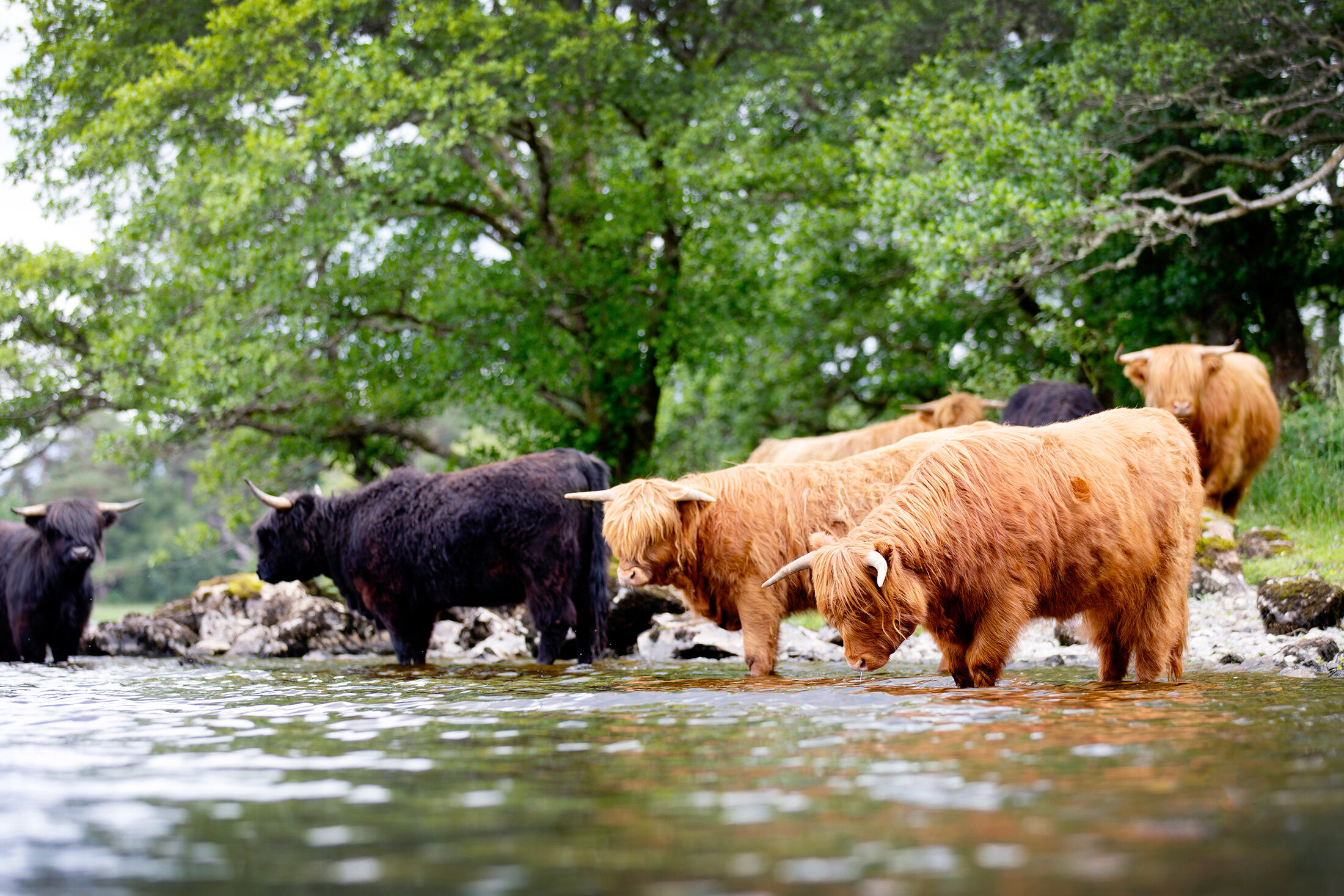
Charitable aims and activities
As a registered charity, our aim is to protect and secure the future of Highland Cattle and ensure we do not lose the special traits that make these cattle unique – especially their hardiness, their ability to convert rough grazing to protein, their longevity and, of course, their unique appearance.
The challenges we face
Funding is required for many areas, for example, for research into how beneficial Highlands are for conservation and greening the environment, and for low input, carbon neutral sustainable farming, and to use this research in promoting the breed and encouraging more Highland keepers.
Highland Cattle plays an iconic role in the heritage and culture of Scotland and, it is important, both socially and economically, for it to continue to do so.
Worryingly, Highland Cattle are on the government’s UK Breeds at Risk register and there are many potential threats that could see the demise of our Highland cattle, not least the fact that they are slow growing animals which puts them at a disadvantage against the faster growing and bigger continental beef breeds. However, their fundamental traits have great advantages, particularly for healthy, tasty beef, conservation and greening the environment and for low input, carbon neutral sustainable farming.
We need to be able to promote these advantages, provide clear researched evidence, and determine and preserve their genetic traits and their DNA.
What we’re doing
We are using cutting-edge conservation techniques and technology to safeguard the breed using semen storage and we wish to encourage embryo extraction and storage.
We maintain the herd book of purebred pedigree Highland cattle capturing the lineage of the breed over generations starting in 1884. We are beginning to verify the herd book by DNA sampling ensuring all new calves are DNA matched to their parentage in a secure and traceable manner.
We have sponsored research programmes, for example, to understand the health benefits of Highland Beef compared to commercial cattle. We wish to do more research in conjunction with leading institutes, particularly in the area of sustainable zero carbon farming, conservation, mitigating climate change and using the DNA programme to further understand the unique traits of Highland cattle.
For example, understanding why Highland Cattle can efficiently convert low grade inputs or what genetic traits allow them to endure extreme weather conditions or produce calves well into their late teens. Such research should demonstrate how beneficial Highlands are to the environment and for low carbon, low-cost beef production and encourage more landowners to keep Highland cattle.
Providing education and support
We have a group of field officers who help to educate members, non-members, young and old alike in Highland Cattle, explain their benefits and how to best breed Highlands in different farming systems and ensure they advance their physical and mental wellbeing. We already fund the first visit to any new members.
Our field officers have run junior members development days and wish to do more to encourage keeping Highlands among potential and current young farmers.
All field officers and Highland Cattle judges are fully conversant with the breed standards which are upheld by the Society. These are then used throughout the UK on field visits and at shows and other events.
The Society supports the large shows in the UK and uses these to promote the breed both to farmers and the general public. Highlanders are a big draw at agricultural shows and events and the society would like to take every opportunity possible to promote the breed at as many events as possible.
How you can help
Your generosity would help enormously towards these projects. The full charitable aims can be seen in our constitution.
If you wish to donate, click on the link below.



